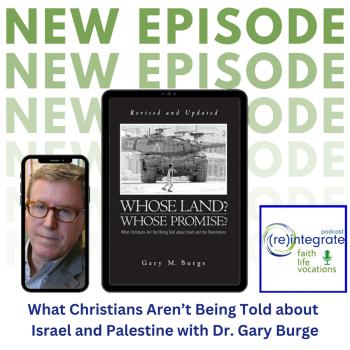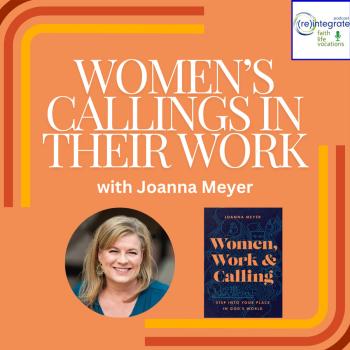 My favorite cartoon characters of all time are those from Looney Tunes. Bugs Bunny, Daffy Duck, Porky Pig, and Marvin the Martian never fail to crack me up. In one episode, Marvin points his “A-1 Disintegrating Pistol” at Daffy Duck, to which Daffy mockingly says, “Little does he realize that I have on my disintegration-proof vest!” Marvin fires the pistol and everything Daffy Duck is disintegrated, save for the vest, which floats in the air for a second before landing on the heap of ashes below. Porky Pig then comes running up with his “ACME Integrating Pistol,” which reconstitutes a confused and frustrated Daffy.
My favorite cartoon characters of all time are those from Looney Tunes. Bugs Bunny, Daffy Duck, Porky Pig, and Marvin the Martian never fail to crack me up. In one episode, Marvin points his “A-1 Disintegrating Pistol” at Daffy Duck, to which Daffy mockingly says, “Little does he realize that I have on my disintegration-proof vest!” Marvin fires the pistol and everything Daffy Duck is disintegrated, save for the vest, which floats in the air for a second before landing on the heap of ashes below. Porky Pig then comes running up with his “ACME Integrating Pistol,” which reconstitutes a confused and frustrated Daffy.
We instinctively know that God has made an incredible, integrated Creation. But we also know, sadly from too many difficult experiences, that things are not the way they’re supposed to be.
The reality of our experience is that life is dis-integrated, literally! We often feel that aspects of our lives, meant to be lived with joy and for the flourishing of all, have become a heap of ash – disintegrated, and all we have to cling to is our disintegration-proof vest (a lot of good that will do us!).
What we need is re-integrated.
As the story of Creation found in Genesis chapter 2 progresses, we read in verse 5 that there were two reasons why shrubs and plants had not yet appeared: (1) God had not yet sent rain, and (2) “there was no one to work the ground.” God’s creational intention for humanity was that we were to work. This, it should be noted, is before the events recorded in Genesis 3, so work is not a consequence of the Fall.
A second, and very significant use of the word “work” is found in Genesis 2:15, “The LORD God took the man and put him in the Garden of Eden to work it and take care of it.” The word translated “work” in both Genesis 2:5 and 2:15 is the Hebrew word ‘avad.
ʿAvad appears many times in the Hebrew Old Testament. A study of the NIV discovers that the word can be translated into English various ways, depending on the context.
- In The Ten Commandments, the word is used for our work week: “Six days you shall labor (ʿavad) and do all your work, but the seventh day is a Sabbath to the LORD your God.” Sabbath rest, so important for those of us who want to do good work for the Lord, comes after six days of work.
- Earlier in the Exodus tale, God told Moses: “Go to Pharaoh and say to him, ‘This is what the LORD says: Let my people go, so that they may worship (ʿavad) me.” The Israelites’ days of bowing to Pharaoh were over; they would now be freed to worship the LORD.
- Later, Joshua pronounced these famous words: “But as for me and my household, we will serve (ʿavad) the LORD.” Joshua exhorted God’s people to abandon serving other gods, and serve the LORD alone.
Wait a minute! This one (yes 1!) Hebrew word can be translated as worship AND work AND service? What’s going on here? Does God need to expand his vocabulary?
No, there is quite a profound lesson here: If this one word encompasses all these things, then what God wants for his people is for us to live lives that are totally integrated. All of our life is meant to be ʿavad!
However, because of our rebellion from God’s grand design, our lives have lost this integrity. We are complicit in our own dis-integration. Why do we tend to compartmentalize our lives – to see work as separate from service and separate from worship? How have you done this unintentionally?
I once was in the den of a friend of mine who is a very successful businessman. He had a whole wall of shelves filled with business and leadership books. Over near his desk, he had a shelf with a Bible and about a dozen popular Christian books.
I asked him, “How have you been able to integrate this wall of books with this shelf of books?”
He looked at me, stunned with the thought, and said, “I have no idea.”
He had been disintegrated and didn’t even know it. What about you? Our worldly culture as well as our church culture have both nurtured the idea that things like church, prayer, evangelism, Bible study, and missions are “sacred” or “holy,” while things like education, business, leisure, sports, arts & entertainment, government, and science & technology are “secular” or “profane.”
Let’s not let ourselves succumb to this dis-integration. Let’s re-integrate and proclaim, “It is ALL ‘AVAD!”
Image by Andre Vandal. Used with permission. Sourced via Flickr.













